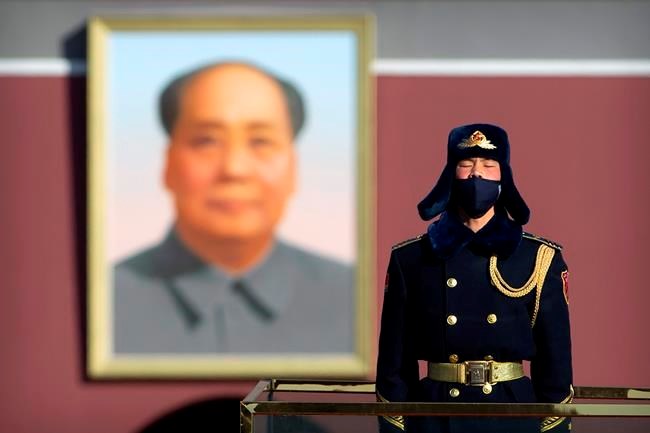BEIJING — China said Wednesday it will revoke the media credentials of all American journalists at three major U.S. news organizations, in effect expelling them from the country, in response to U.S. restrictions on Chinese state-controlled media.
The foreign ministry said American citizens working for The New York Times, The Wall Street Journal and The Washington Post with credentials expiring before the end of the year must surrender their press cards within 10 days.
It is the latest in a series of tit-for-tat actions by the two governments as the Trump administration takes a more confrontational stance in dealing with China than his predecessors. The countries remained enmeshed in a trade war despite a recent truce and have traded angry words over the coronavirus pandemic that emerged in China and has spread worldwide.
The move comes after the Trump administration designated five Chinese media outlets as foreign missions and restricted the number of Chinese who could work for them in a de facto expulsion of about one-third of their Chinese staff.
China described its steps as “necessary and reciprocal countermeasures that China is compelled to take in response to the unreasonable oppression the Chinese media organizations experience in the U.S."
The American journalists will likely have to leave China because their visas are tied to their press credentials. They will also be unable to work in the semi-autonomous territories of Hong Kong and Macao, the foreign ministry said in a release posted on its
U.S. Secretary of State Mike Pompeo disputed the comparison between the U.S. and Chinese actions, telling reporters in Washington that they enjoy press freedoms that don't exist in China.
“The individuals that we identified a few weeks back were not media that were acting here freely," he said. “They were part of Chinese propaganda outlets. We’ve identified these as foreign missions under American law. These aren’t apples to apples, and I regret China’s decision today to further foreclose the world’s ability to conduct free press operations."
Editors of all three news organizations condemned the action.
“The Chinese government's decision is particularly regrettable because it comes in the midst of an unprecedented global crisis, when clear and reliable information about the international response to covid-19 is essential,” said Marty Baron, executive editor of The Washington Post. “Severely limiting the flow of that information, which China now seeks to do, only aggravates the situation.”
Dean Baquet, executive editor of The New York Times, called it a “grave mistake” for China to cut itself off from some of the world's top news organizations and called on the Chinese and American governments to move quickly to resolve the dispute.
“The health and safety of people around the world depend on impartial reporting about its two largest economies, both of them now battling a common epidemic,” Baquet said.
Matt Murray, editor in chief of The Wall Street Journal, called it an unprecedented attack on freedom of the press at a time of crisis and said the Journal's commitment to reporting fully and deeply on China hasn't changed.
The U.S. announced earlier this month that five state-controlled Chinese media outlets would be restricted to 100 visas. It cited increasingly harsh surveillance, harassment and intimidation of American and other foreign journalists working in China.
The Chinese outlets, which employ about 160 Chinese citizens in the U.S., include the official Xinhua News Agency and China Global Television Network, or CGTN, the overseas arm of state broadcaster CCTV.
By designating the five Chinese media companies as foreign missions, the U.S. government required them to register their properties and employees in the United States. The State Department said that was to recognize “they are effectively controlled” by the Chinese government.
Soon after, China revoked the credentials of three Wall Street Journal journalists, saying it was in response to a headline on an opinion piece in the newspaper that it considered derogatory. The U.S. then announced the visa limit for the five Chinese media outlets.
In its announcement Wednesday, China said five U.S. outlets — the three newspapers, Voice of America and Time — would be required to declare information in writing about their staff, finance, operation and real estate in China.
It also said China will take reciprocal measures against American journalists generally on visas, administrative review and reporting, without providing details.
___
Associated Press Diplomatic Writer Matthew Lee in Washington and Media Writer David Bauder in New York contributed to this story.
Ken Moritsugu, The Associated Press


